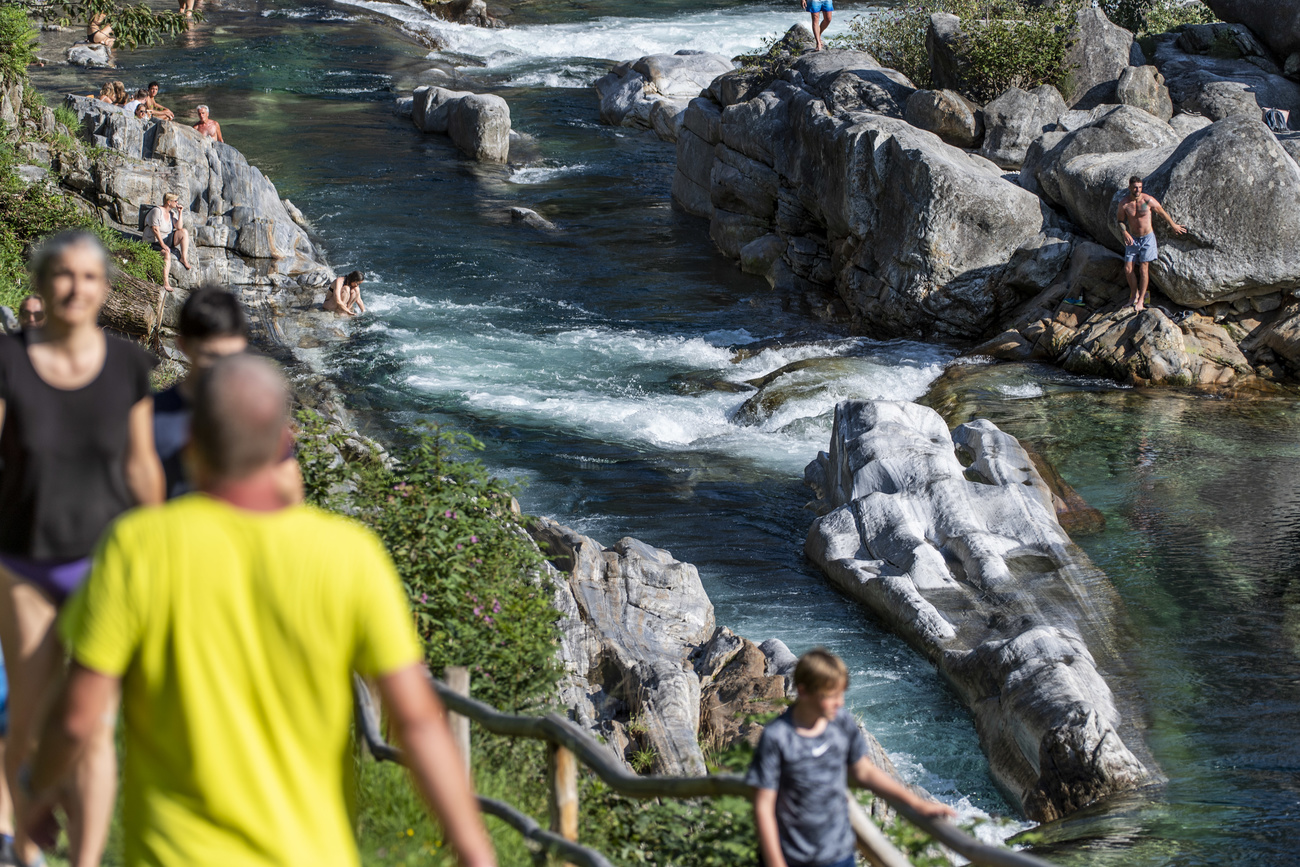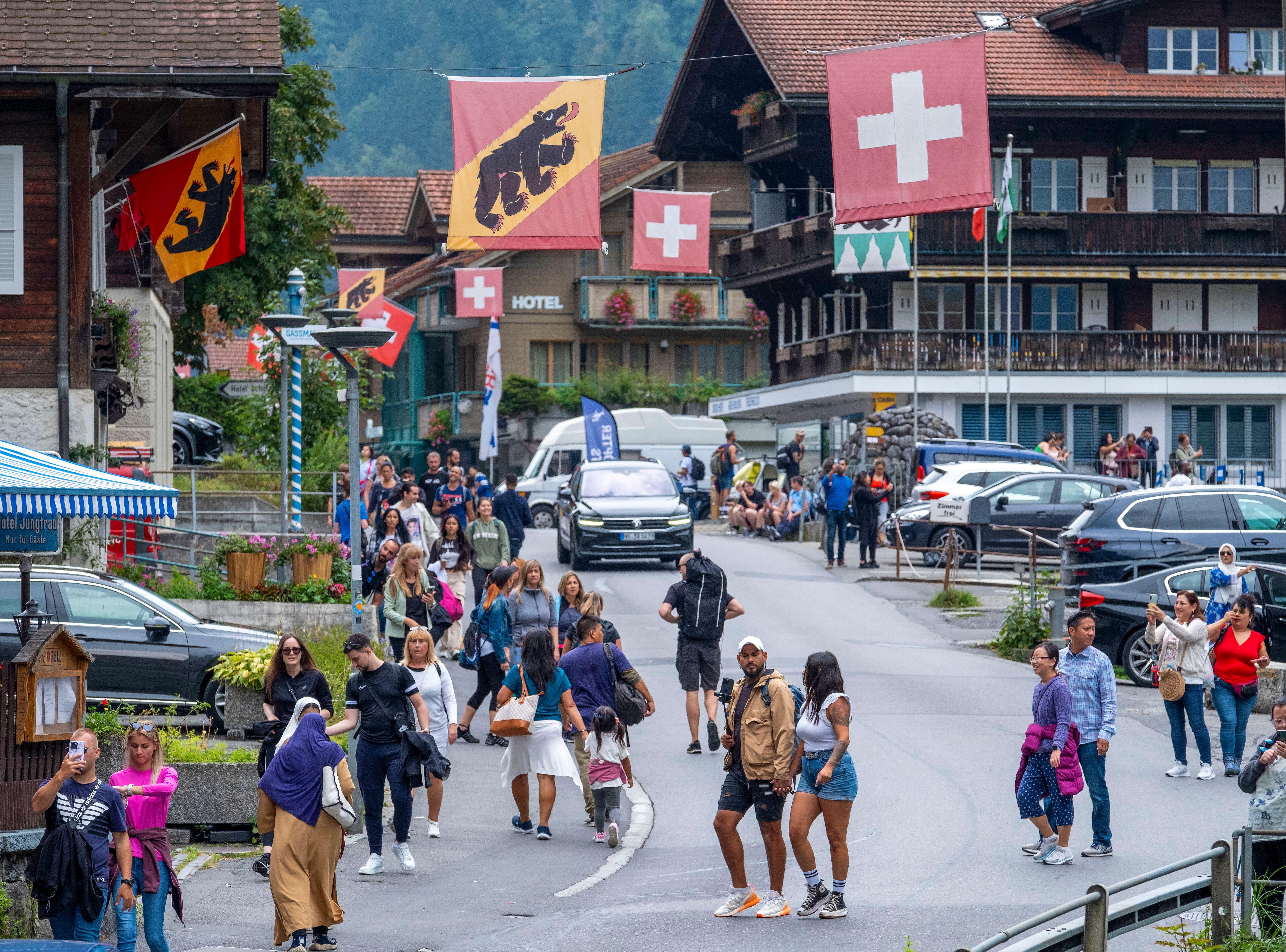
Swiss overtourism threatens industry’s health

The Swiss tourism industry is booming but needs to resolve overcrowding issues and the problem of restricted ski seasons caused by climate change, says economic research institute BAK Economics.
Do you want to read our weekly top stories? Subscribe here.
“Compared to neighbouring countries, the local industry has already digested the Covid shock well,” said BAK economist Michael Grass. However, this does not apply equally to all destinations. According to BAK Economics, growth could also become a problem in tourism hotspots.
+ Switzerland expects bumper tourism summer
According to the data from BAK Economics, the tourists are increasingly concentrating on destinations that are already in high demand.
“Residents in popular tourist destinations are increasingly critical of the growth in visitor flows,” said Grass. In addition to overtourism, the industry is also concerned about climate change and the shortage of skilled labour.
Uneven distribution
In general, the influx of tourists is very unevenly distributed throughout the year. In particular, the highly seasonal Alpine destinations are endeavouring to promote the low season and thus year-round tourism, said Grass. This would allow resources to be used more efficiently and reduce the need for seasonal labour.
Meanwhile, the situation looks better in the cities. In contrast to mountain tourism, good summer weather or good snow conditions in winter are not crucial here and people are increasingly coming in autumn or spring.

More
Swiss village of Lauterbrunnen mulls Venice-style tourist entry charge
According to Grass, the trend towards city trips has already led to a slight improvement in addition to the efforts of mountain destinations to better distribute the flow of tourists over time. However, BAK data also shows that there is still plenty of room for improvement in terms of year-round tourism.
However, according to BAK analysis, the biggest problem remains the geographical distribution of tourists. Large cities, for example, are much more affected by the trend towards urban tourism than smaller ones, says Grass. “And in Alpine destinations, the changing weather conditions are leading to an increasing concentration.”
Relief unlikely
Large ski resorts also attract more guests due to their greater variety of offers. And according to BAK, they are expanding their market share even further compared to smaller ones. According to the experts, there is unlikely to be any relief for tourism hotspots and their populations in the near future. Overtourism will continue to be a problem for the industry.
According to Grass, another challenge for the industry is the decreasing length of stay per guest, both for Swiss and foreign guests. One reason for this is also the increase in city breaks, which are generally associated with a shorter length of stay than other holidays.
Longer stays also have a positive effect on the ecological footprint, as there is less travelling overall. Every change of guests also involves a certain amount of effort for the hotels.
The BAK expert also sees the increase in added value as another important point for the local tourism industry. “This would allow higher wages to be paid, which in turn would alleviate the shortage of skilled labour,” says Grass. At the same time, greater efficiency would also help in the fight against overtourism and climate change.
Neutral conclusion
According to BAK, the real added value per overnight stay rose by 0.9% annually between 2005 and 2019. However, there is currently upward potential again compared to 2019.
Overall, the BAK outlook for the tourism industry is mixed. They see a positive trend in terms of year-round tourism and value creation, but a negative trend in terms of geographical distribution. Meanwhile, they see a neutral trend in the length of stay per guest.
Translated from German by DeepL/mga
This news story has been written and carefully fact-checked by an external editorial team. At SWI swissinfo.ch we select the most relevant news for an international audience and use automatic translation tools such as DeepL to translate it into English. Providing you with automatically translated news gives us the time to write more in-depth articles.
If you want to know more about how we work, have a look here, and if you have feedback on this news story please write to english@swissinfo.ch.

In compliance with the JTI standards
More: SWI swissinfo.ch certified by the Journalism Trust Initiative






























You can find an overview of ongoing debates with our journalists here . Please join us!
If you want to start a conversation about a topic raised in this article or want to report factual errors, email us at english@swissinfo.ch.